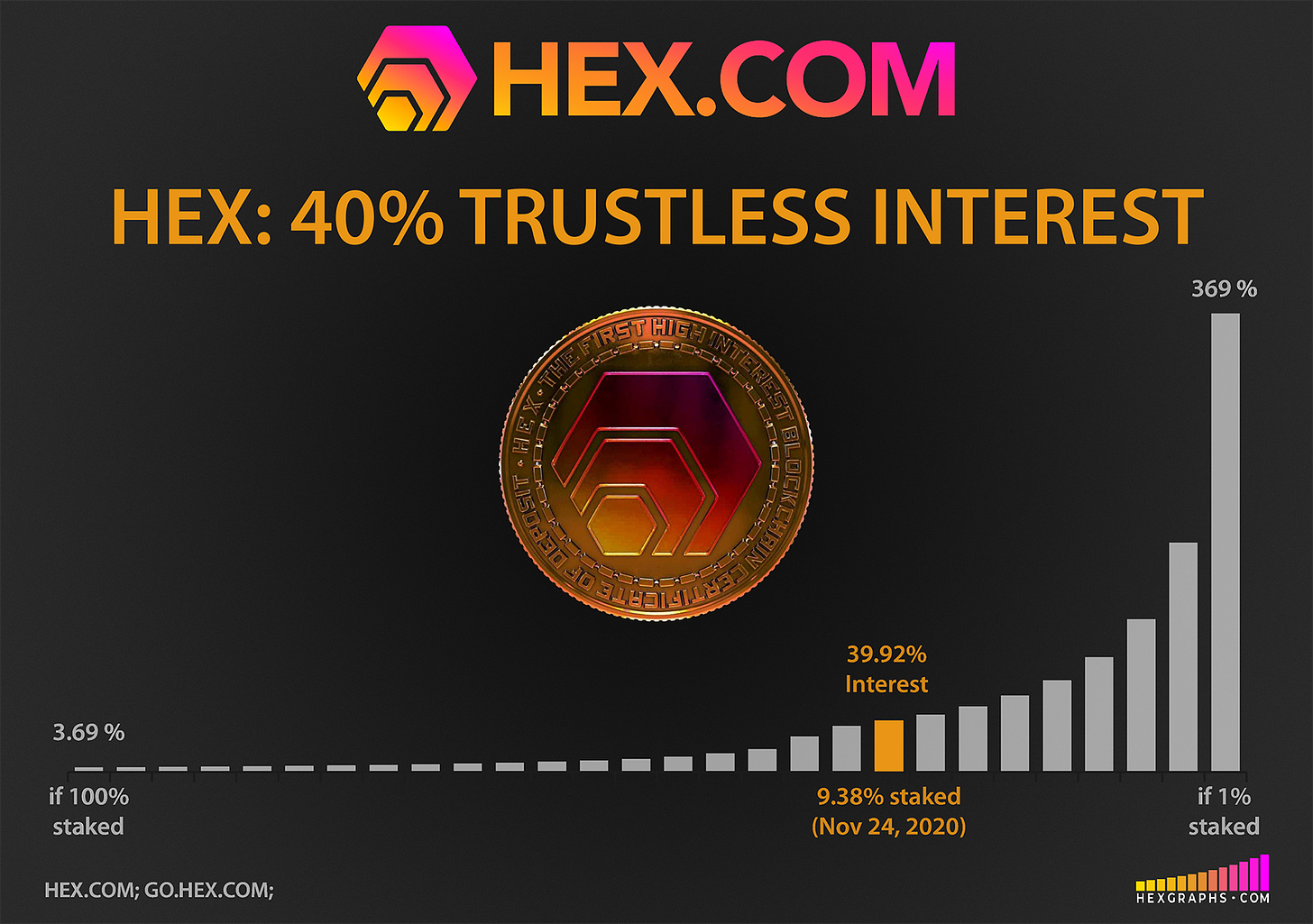HEX: Proof-Of-Wait (PoWa) Mining
HEX Mining is Better and more Profitable than Bitcoin Mining
What is a Bitcoin miner? Where do Bitcoins come from? And is there a better way?
A new cryptocurrency HEX may have found a better, cheaper, secure, more profitable, and perhaps better way for "miners" to create the new "coins" that represent the inflation of a cryptocurrency. With paper money, a government decides when to print and distribute money. Bitcoin and HEX doesn't have a central government.
Bitcoin is software that can only be changed through consensus or agreement between all of the thousands of participating nodes around the world. To be precise, a majority of them have to agree over 51%. The majority rules and the majority mostly, throughout the 12-year history of Bitcoin have agreed to do, nothing, and make no changes, unless forced.
There have been inflation bugs, where a chain rollback was necessary, but nothing too serious. The key is that Bitcoin mining is beyond any ordinary citizen getting involved. It's costly and barely profitable over the long haul.
HEX, on the other hand, is a finished product, a Smart Contract on the Ethereum Blockchain. Ordinary people like you and I, participate in "Staking" our HEX for 1 to 5555 days, and the interest we are awarded is new HEX coming into existence when we end our "Stake". "We the people" or "We the stakers" produce all new HEX.
With Bitcoin, miners use special software to solve math problems and are issued a certain number of bitcoins in exchange. This provides a smart way to issue the currency and also creates an incentive for more people to mine. Bitcoin miners help keep the Bitcoin network secure by approving transactions. Mining is an important and integral part of Bitcoin that ensures fairness while keeping the Bitcoin network stable, safe, and secure.
Bitcoin uses Proof-Of-Work (PoW). HEX uses Proof-Of-Wait (PoWa). Proof-Of-Wait is really an example of delayed gratification and saving to produce gains. HEX teaches how to save, plan and allows investors to enjoy the ride.
Bitcoin miners enrich a few mining hardware manufacturers then enriches electricity companies to mine. In HEX, miners/stakers enrich other HEX holders then use time to earn HEX inflation.
This way stakers/miners are rewarded with supply inflation. Staking creates scarcity that may positively affect HEX price. Meanwhile, holders of HEX suffer the supply inflation from stakers/miners minting new coins but enjoy the liquidity of their HEX tokens. This mechanism is basically equivalent to stakers lending value(creating scarcity) to hodlers in return for interest.
The total allocated supply of HEX inflates by a maximum of 3.69% per year. This inflation is not released into circulation directly. Instead, it is credited daily to stakers/miners proportionally to their share of all HEX staked that day.
There are several penalties associated with the Staking of HEX:
50% of Emergency End Stake (EES) penalties, penalties when stakes are ended early, are distributed among the stakers/miners proportionally that are active that day and 50% goes to the Origin Address(OA).
50% of Late End Stake(LES) penalties, penalties when stakes are ended late, are distributed among the stakers/miners proportionally and 50% goes to the Origin Address(OA). Consequently, interest is not fixed and is variable on daily basis. The interest for the stakers/miners is 3.69% APY, if and only if, 100% of outstanding HEX is staked. Any percentage less and stakers make more interest.
When just under 10% of total HEX is staked, the stakers/miners share an annualized interest of 39.92%. When more stakers break their contract obligations and pay penalties, these penalties get redistributed to all stakers/miners active on the given day. This way, a low staking ratio encourages staking through increased interest.
The HEX system uses Proof-Of-Wait (PoWa) is better for the mental health of investors. It uses much less electricity and because it is hosted on the Ethereum Blockchain it is very, very secure.
Explore staking HEX with a new App which is currently only available on Android, but will be available on IOS shortly.
http://StakerApp.Bitcoin-Doctor.com



